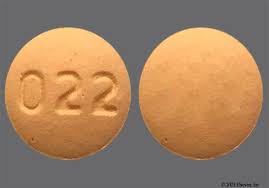Benzonatate, a non-narcotic antitussive is an alternative possibly effective in chronic cough- a condition affecting nearly 5% of adult population each year. A study in the American Journal of Respiratory and Critical Care Medicine found that treatment with benzonatate reduced cough frequency by 25% among patients who had chronic coughs for at least two weeks. This medicine works by desensitizing the stretch receptors in the lungs and airways, which then decreases cough reflex. Benzonatate is a non-narcotic antitussive agent that suppresses coughing by anesthetizing the production of cough reflex sensors in pseudopods,[1] with no sedative or μ-opioid-like properties, as commonly seen with other antitussives such as codeine.
Dr. Richard Irwin, a prominent pulmonologist at the University of Massachusetts Medical School and co-author of one study on benzonatate makes clear that it works – and can be done so without crazily having some organ loose or fall out.…yet notes caution is an initial concept that…like Roger Miller’s “you don’t have to call me darlin,” but he also stated we missed something as Listeria got away: numbing in its mouth x 2 sounds painful? This note is especially true when you consider that the CDC (Centers for Disease Control and Prevention) has revealed benzonatate-induced accidental overdoses in children under ten years. According to the CDC, these types of incidents can be avoided by ensuring vaccines are stored in an adequate manner and given in the proper dose.

As effective as it is, benzonatate does not work for all situations. Gastroesophageal reflux disease (GERD) or other underlying conditions can also cause your cough to linger, so you may need additional treatments aimed at the root of the issue. For instance, a GERD cough may improve with proton pump inhibitors rather than benzonatate alone. Moreover, the effectiveness of drugs can decrease through chronic medication, requiring other anti-hypertensive therapies for long-term control.
Given the multifarious nature of chronic cough, benzonatate continues to have its place on a clinician's shelf as an adjuvant to other treatment strategies. If you have ever asked yourself what is benzonatate for, then it gives cough relief by acting on the receptors in your lungs directly. Ginger might even be dangerous for some patients, so it is not a silver bullet and should always have its use considered within the patient's health status.
You can visit what is benzonatate used for further details.